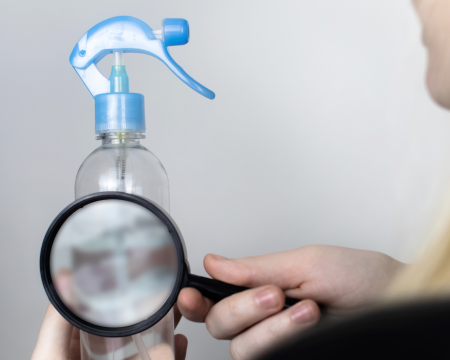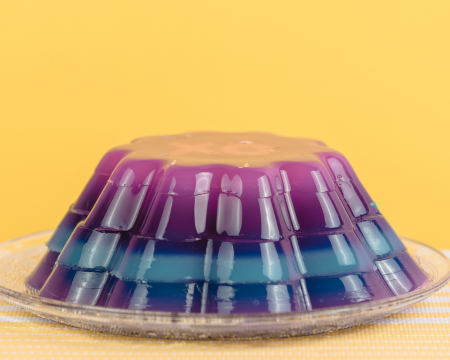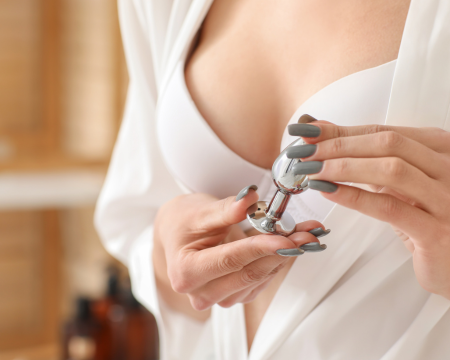When it comes to products we use internally, such as sex toys, ensuring the safety and quality of the materials is crucial.
The term "medical-grade" is often thrown around as a marker of trustworthiness, but what does it really mean? Understanding material safety, especially when it involves contact with sensitive tissues like mucous membranes, is not as straightforward as it may seem.
This article dives deep into what makes a material safe, the significance of terms like "medical-grade," and how to make informed decisions about the products you use.
The Role of Mucous Membranes and the Importance of Material Safety
Mucous membranes are found wherever the inside of your body meets the outside, such as in your mouth, nose, vagina, or anus.
These membranes serve as a barrier, protecting you from dirt and pathogens. However, they are more permeable than the skin covering the rest of your body, meaning they can absorb fluids and chemicals more easily.
This makes the safety of materials used on these tissues critical. To be safe, a material must be non-porous, preventing the absorption of harmful substances, and inert, meaning it should not chemically react with your body.
Understanding Porosity and Its Implications
Porosity refers to how much a material can absorb liquids or air, similar to how a sponge soaks up water.
A porous material can harbor bacteria and other harmful microorganisms, which can lead to infections, even with thorough cleaning. In the context of sex toys, porosity is particularly important because porous toys can retain bacteria even after being cleaned.
Elastomers, a broad category of rubbery materials, can vary in porosity. Some elastomers are closed-cell, meaning they consist of closed bubbles that don’t allow anything to penetrate.
Others are open-cell, meaning they have a structure that allows liquids and air to pass through. While many synthetic elastomers can be made to be non-porous, not all are, so the term "elastomer" alone doesn’t guarantee safety.
For instance, non-porous silicone is a preferred material in many medical devices due to its impermeability.
Chemical and Biological Inertness: Why It Matters
Inertness refers to how non-reactive a material is with your body. Ideally, a material used in sex toys should not react with the body’s tissues, as reactions can cause irritation, increase the risk of infections, or even introduce toxins. However, no material is entirely inert — inertness is relative.
For example, silicone, which is primarily composed of silicon and oxygen, is known for its inertness and impermeability, making it a common choice for medical devices. However, the inertness of silicone can be compromised if mixed with certain additives.
The key takeaway is that while materials like silicone are generally safe, their safety is not absolute and depends on their specific formulation and testing.
A Glossary of Relevant Materials
When it comes to sex toys, not all materials are created equal.Let's break down some common ones, so you know what's what.
Plasticizers:
Think of plasticizers like the stuff that makes things bendy and flexible.
Imagine adding water to clay—it gets softer and easier to mold. But here’s the catch: plasticizers don’t actually stick to the material. They can leak out over time, which isn’t great, especially if they’re the kind that can mess with your health.

Phthalates:
Phthalates are a type of plasticizer often used to make hard plastics softer. The problem? They don’t stay put and can seep out, which is bad news because some phthalates might be harmful.
While we're pretty sure some of them are not great for you, nobody's entirely sure which ones are the worst, so the rules about using them are constantly changing.

Silicone:
Silicone is like the gold standard in the world of sex toys. It’s a rubbery material mostly made of silica (the stuff in sand). Most silicones are non-porous and safe because they don't react with your body.
That’s why you find silicone in everything from medical devices to kitchen tools. But, not all silicone is created equal—some types might have extra ingredients mixed in that could make them less safe.
Just because something is labeled "silicone" doesn’t automatically mean it’s the best option.

Latex:
Latex is natural rubber and, like most natural things, it isn’t inert (meaning it can react with your body).
Some people are allergic to latex, so it’s something to watch out for.

Jelly Rubber:
You’ve probably seen those cheap, wiggly, jello-like toys at some point. This stuff is known as jelly rubber, and it’s the wild card of sex toy materials.
It’s usually made from a mix of stuff that isn’t stable or safe, so unless you’re using a condom over it, it’s best to avoid it.

PVC (Polyvinyl Chloride):
PVC is a versatile plastic used in everything from plumbing pipes to medical devices. Flexible PVC, the kind used in some sex toys, needs plasticizers to make it soft.
The good news is that modern PVC doesn’t necessarily contain harmful phthalates anymore, and some of it can even be medical-grade. But, just like silicone, you can’t judge PVC on its name alone—you need to know more about how it’s made.

Glass:
Glass is a solid option because it’s non-porous and inert (it doesn’t react with your body).
As long as it’s sturdy and not likely to break, glass is a safe bet.

Stainless steel:
Stainless steel is another safe material, and its name hints at why—it’s resistant to staining, which means it’s inert. Just make sure it doesn’t rust, and you’re good to go.

Who Can You Trust? The Reality of Material Safety
Unfortunately, the sex toy industry is largely unregulated, meaning that claims about material safety often rely on the honor system.
Companies can label their products as "body safe" without any independent verification. This makes it challenging for consumers to trust the safety of the materials used.
In contrast, industries like medical devices and food production are regulated by bodies like the FDA.
These industries undergo rigorous testing to ensure the materials used are safe for their intended purposes.
When a product claims to be made from "medical-grade" materials, it usually means that the materials, not the final product, have passed these stringent tests.
However, some companies may claim their products use "FDA-approved" materials, often referring to food-grade materials, which are not held to the same standards as medical-grade materials.
Practical Tips for Identifying Unsafe Materials
When you’re buying a sex toy, you want to be sure it’s made of safe stuff. But how can you tell?
Here are some easy-to-remember red flags that could mean your toy isn’t as safe as it should be.
"Weeping" or "Bleeding":
Ever pick up a toy and notice it’s got this weird, slick film on it? That’s not just sweat—it’s the toy’s plasticizers leaking out.
If your toy is weeping or bleeding, that’s a big nope. It means the material isn’t stable, and it’s likely to cause problems down the road.
Changes in Color or Texture:
If your toy suddenly looks different—maybe the color’s fading, or it feels a bit rougher—that’s a sign something’s up.
It could be a chemical reaction happening in the material, which is not what you want near your body. Even if it’s just a slight change, take it as a warning sign.
New Smells:
A brand-new toy might have a bit of a smell at first, especially if it was recently sterilized. But if that smell doesn’t go away or a new one pops up later, that’s a bad sign.
A toy that starts smelling funky could be leaching chemicals, or worse, hosting bacteria.
Hard to Clean:
If you’re scrubbing your toy and it still doesn’t look clean, it’s probably not. A good, safe toy should be easy to wash and stay clean.
If dirt, lint, or other gunk sticks to it, there’s a good chance it’s holding onto stuff you can’t see too—like bacteria. And that’s a no-go.
Sticky or Tacky Feel:
Some toys have a slightly grippy or sticky feel, which might seem normal. But if it feels like it’s picking up everything from dust to hair, that’s not a good sign.
It means the material is holding onto things that could be harmful, like bacteria or chemicals. You want your toy to be smooth and easy to keep clean, not a lint magnet.
Conclusion: The Importance of Informed Choices
Ultimately, the safety of the materials in your sex toys is a critical consideration for your health and well-being.
While the term "medical-grade" can offer some reassurance, it’s essential to understand that it’s not a catch-all guarantee of safety.
By staying informed, understanding the materials, and being vigilant about signs of degradation, you can make safer choices for your body.
Trust your instincts and remember that when it comes to material safety, it’s better to be cautious than to take risks with your health.
When you’re unsure about which sex toy to choose, it’s a good idea to look for brands that have been around for a while, like Utimi.
Just because a store is on Amazon doesn’t necessarily mean it’s reliable—some stores with names that look like a random mix of letters might be new to the scene and lack the experience to know what really works.
Now, we’re not saying that all new stores are bad; some might have great products.
But newer companies sometimes don’t have the years of expertise needed to ensure their toys are truly safe and effective.
That’s where Utimi stands out.
We’ve been in the sex toy industry for 10 years, and in that time, we’ve earned the trust of more than 50,000 customers.
We take great care in selecting safe materials, always keeping customer feedback in mind.
If there’s ever an issue, we make sure to learn from it, so it doesn’t happen again.
Over the years, we’ve built strong relationships with suppliers and factories, allowing us to choose only the best products.
Our experience helps us quickly identify which materials are safe and which aren’t, so you can feel confident in choosing Utimi—just like the tens of thousands of customers who already trust us.